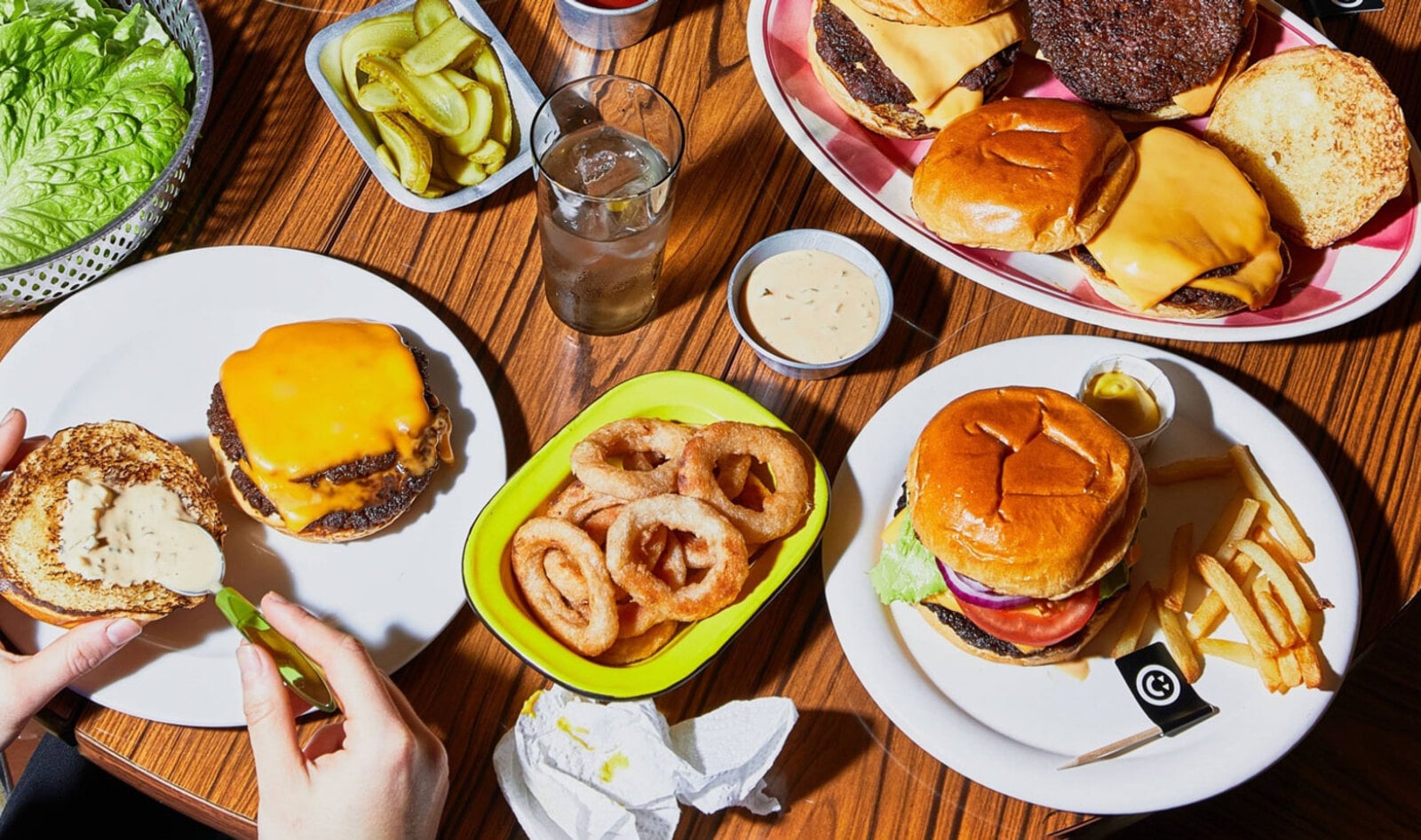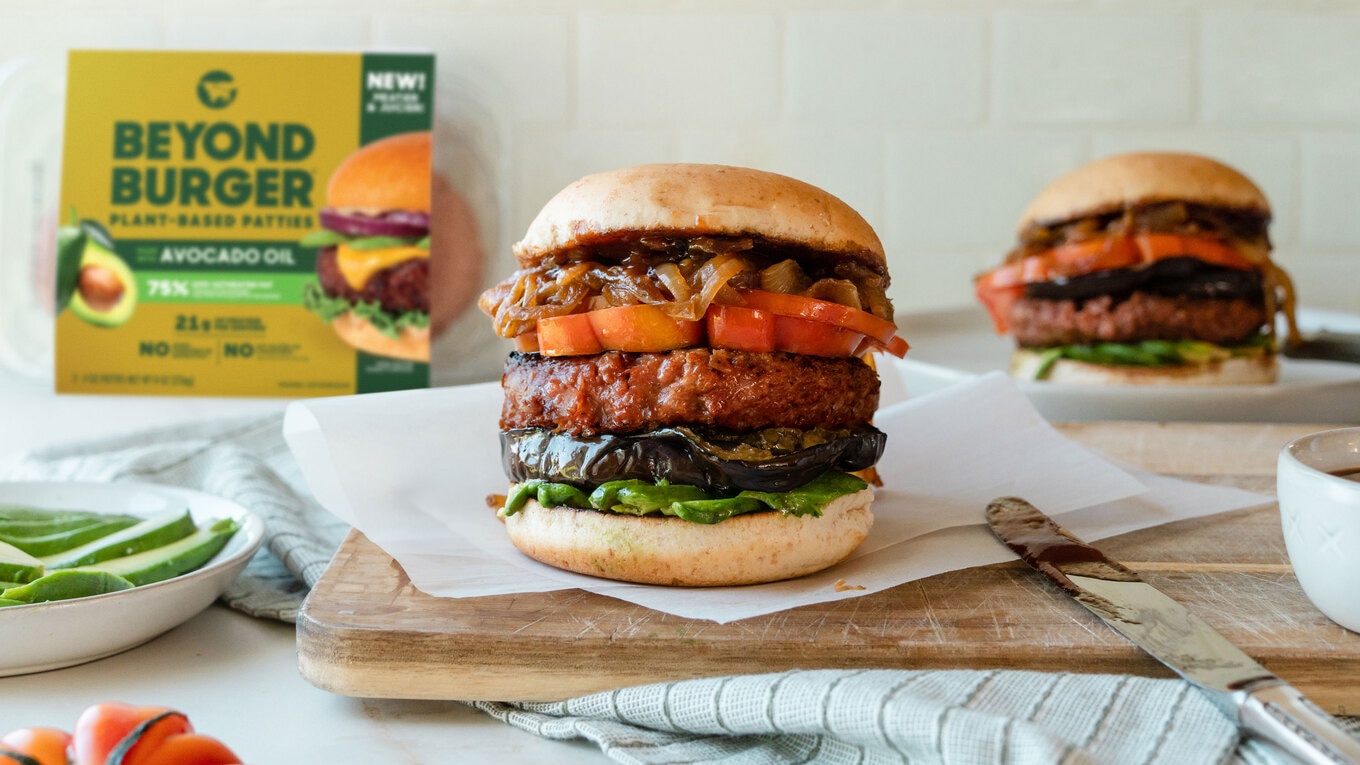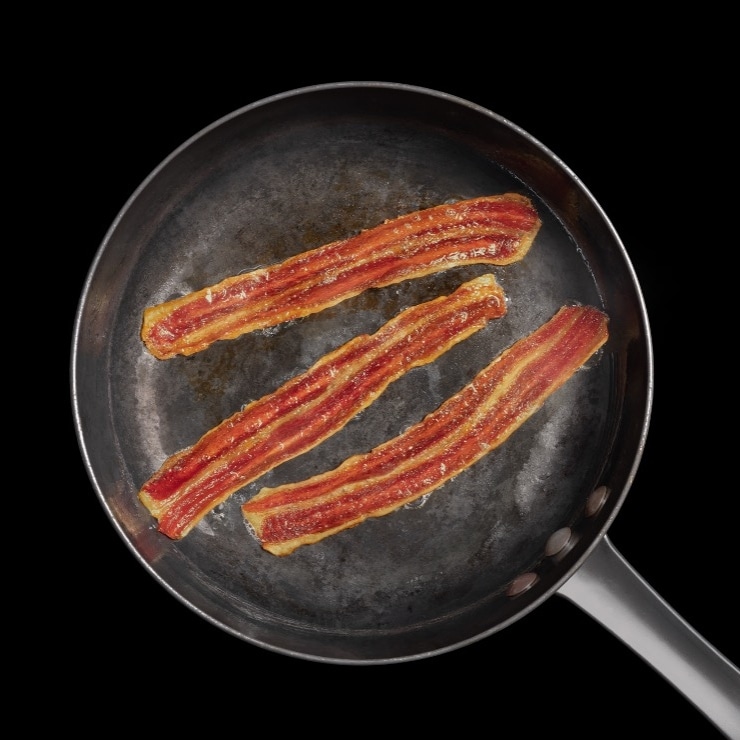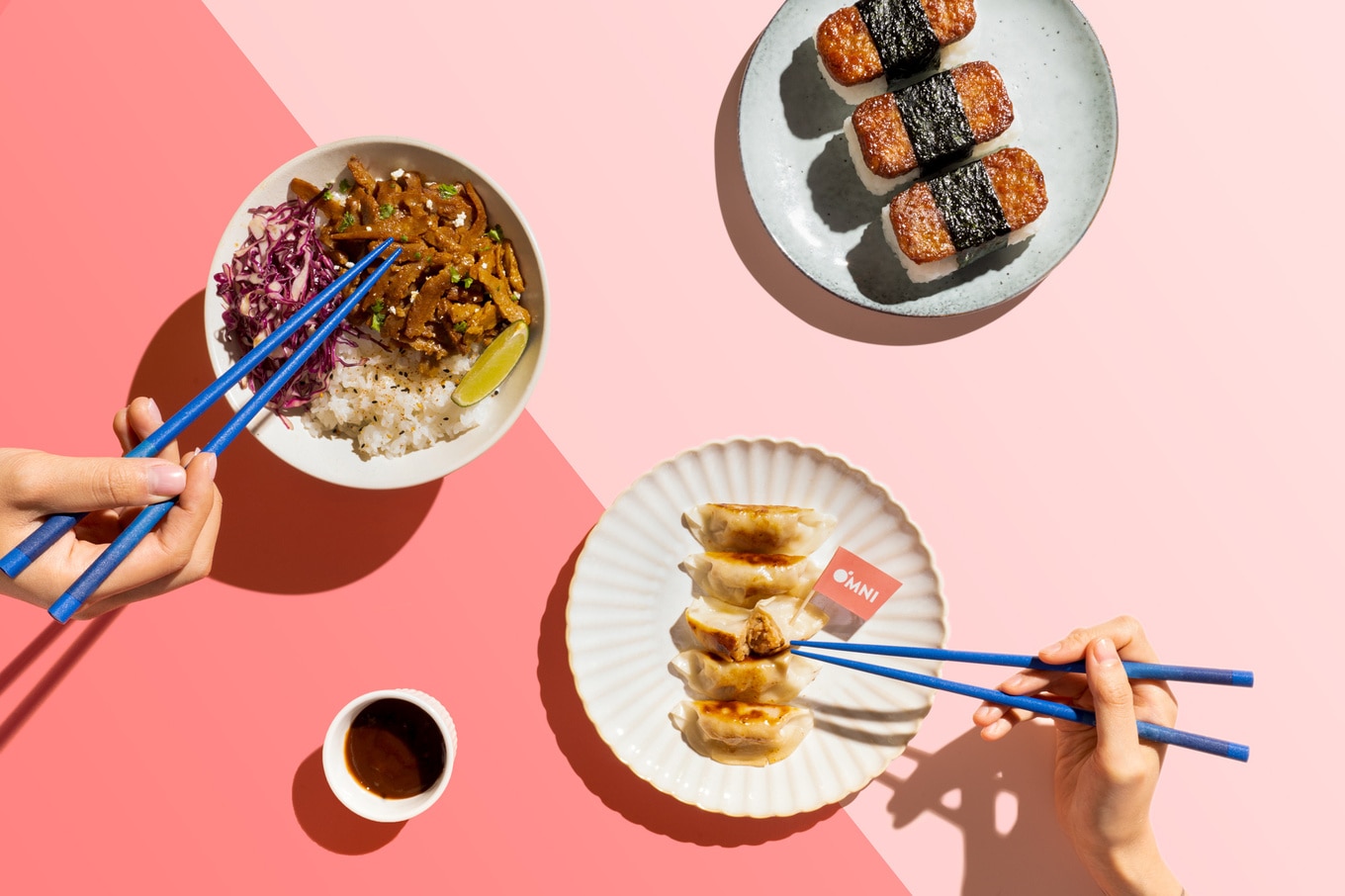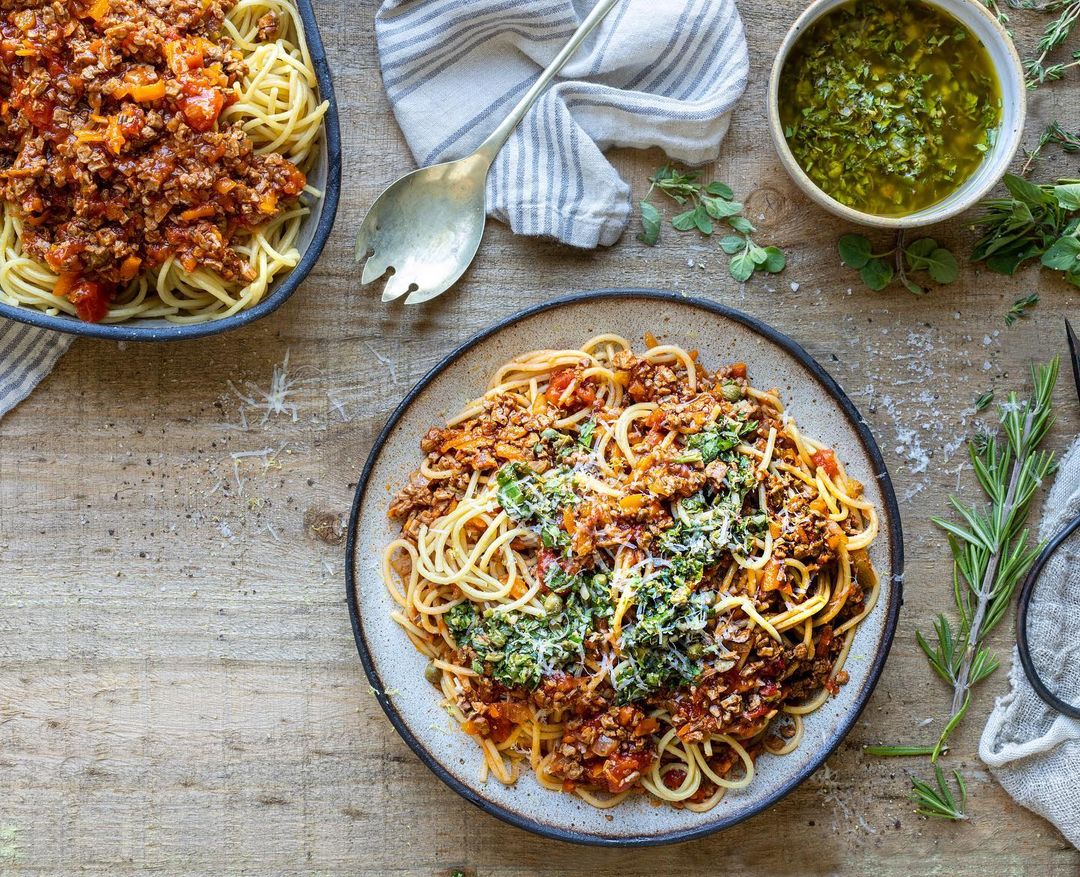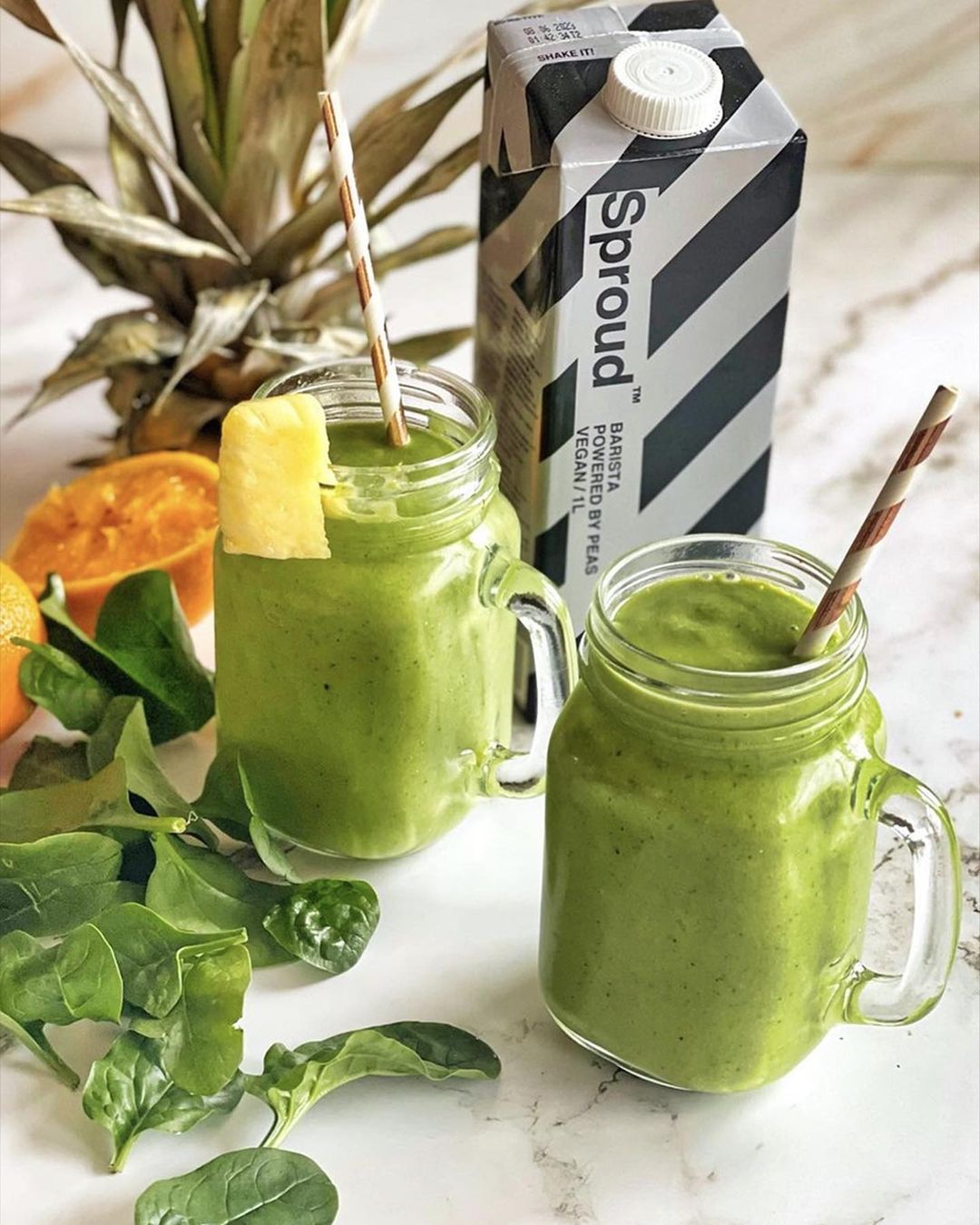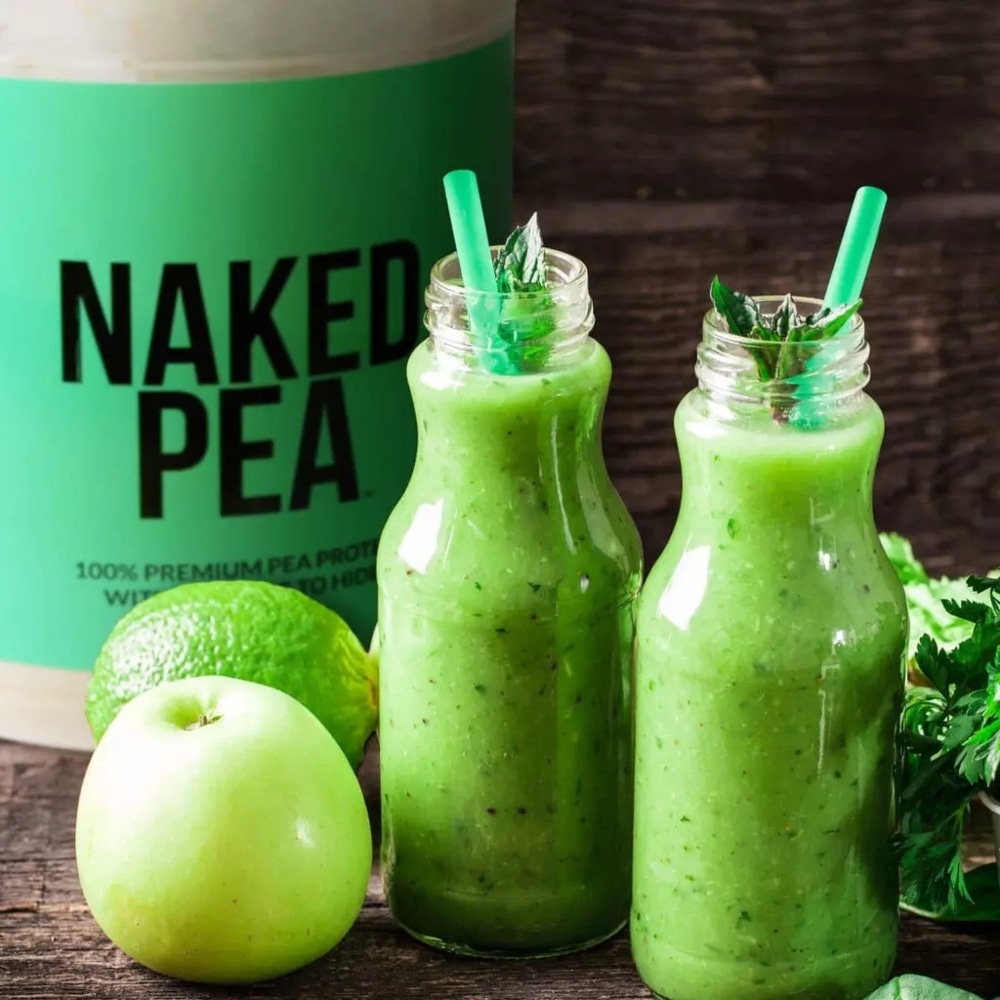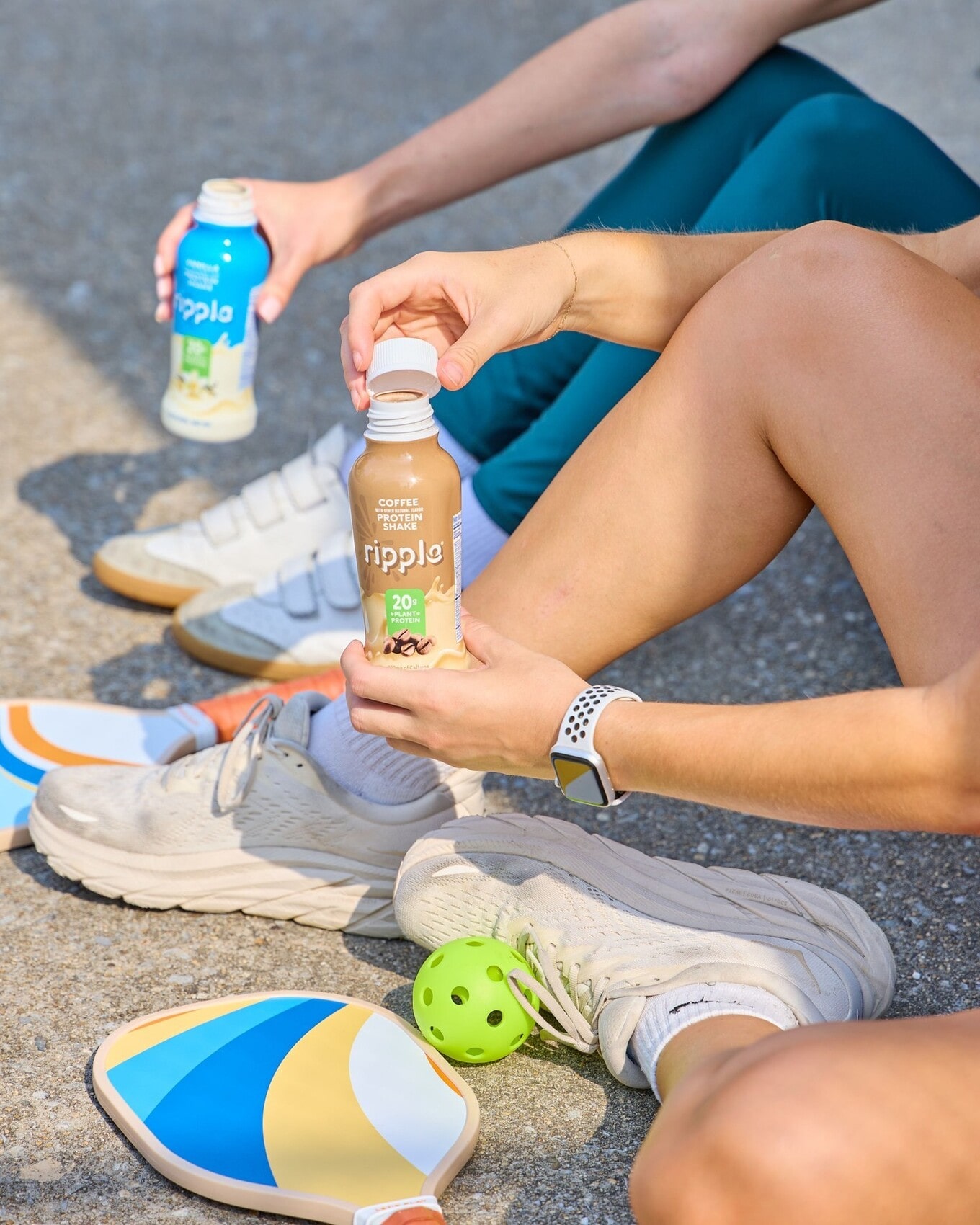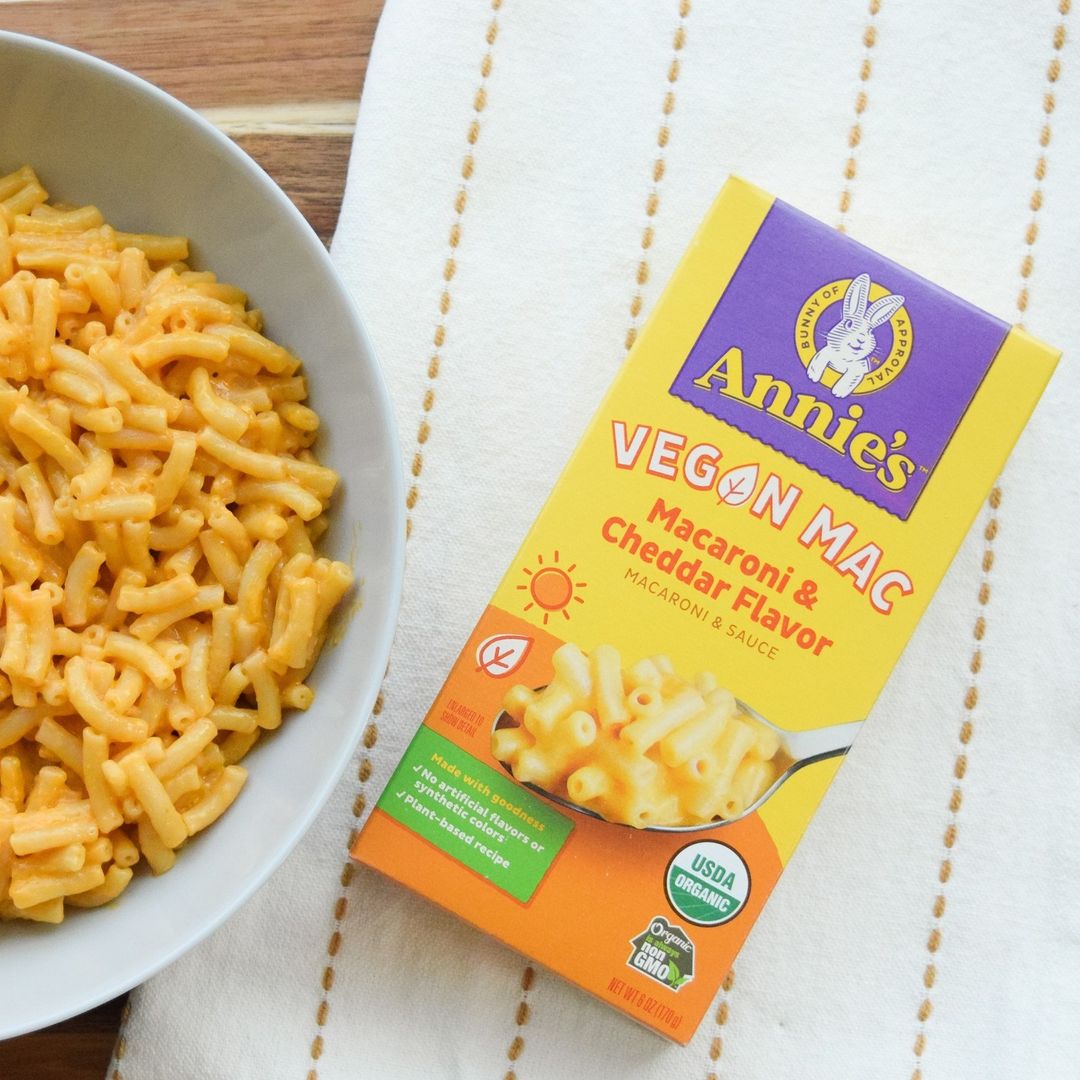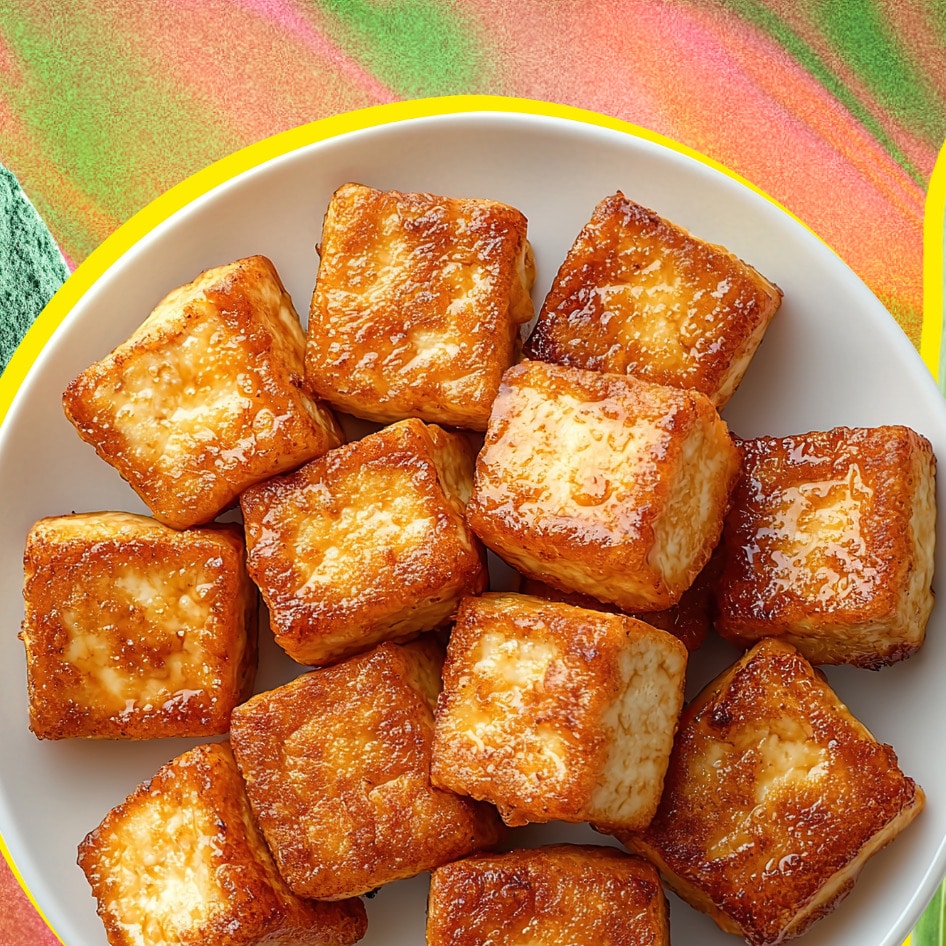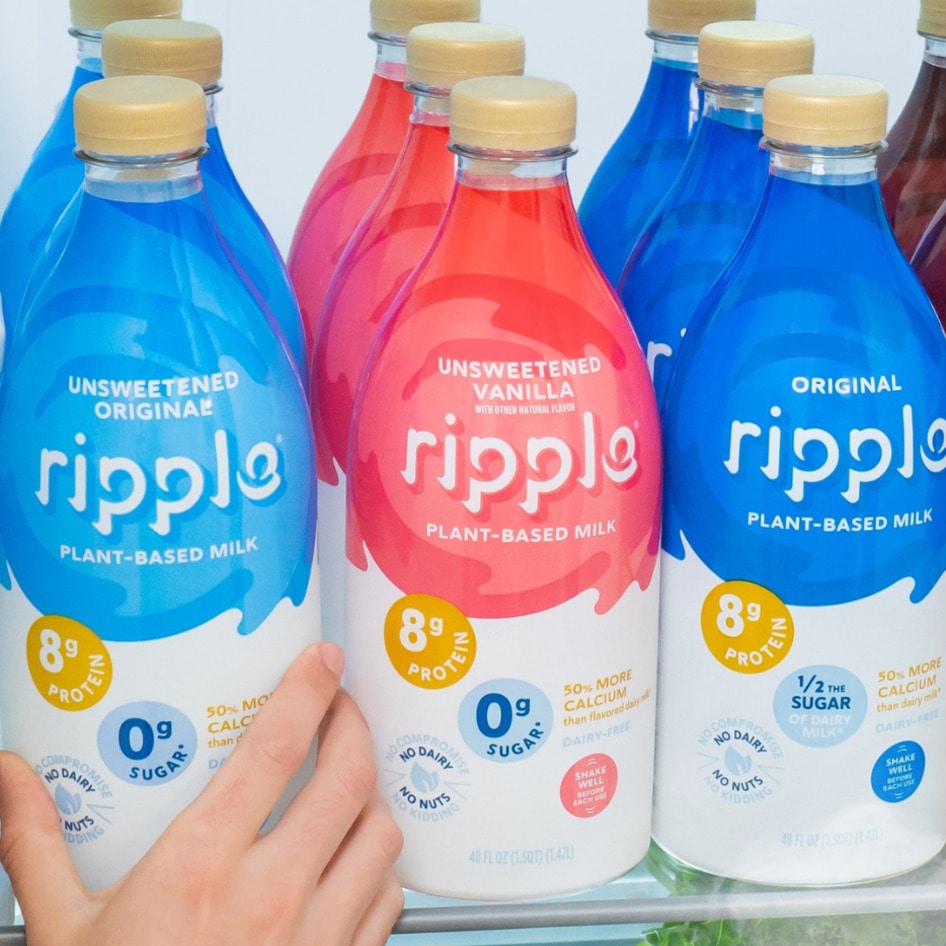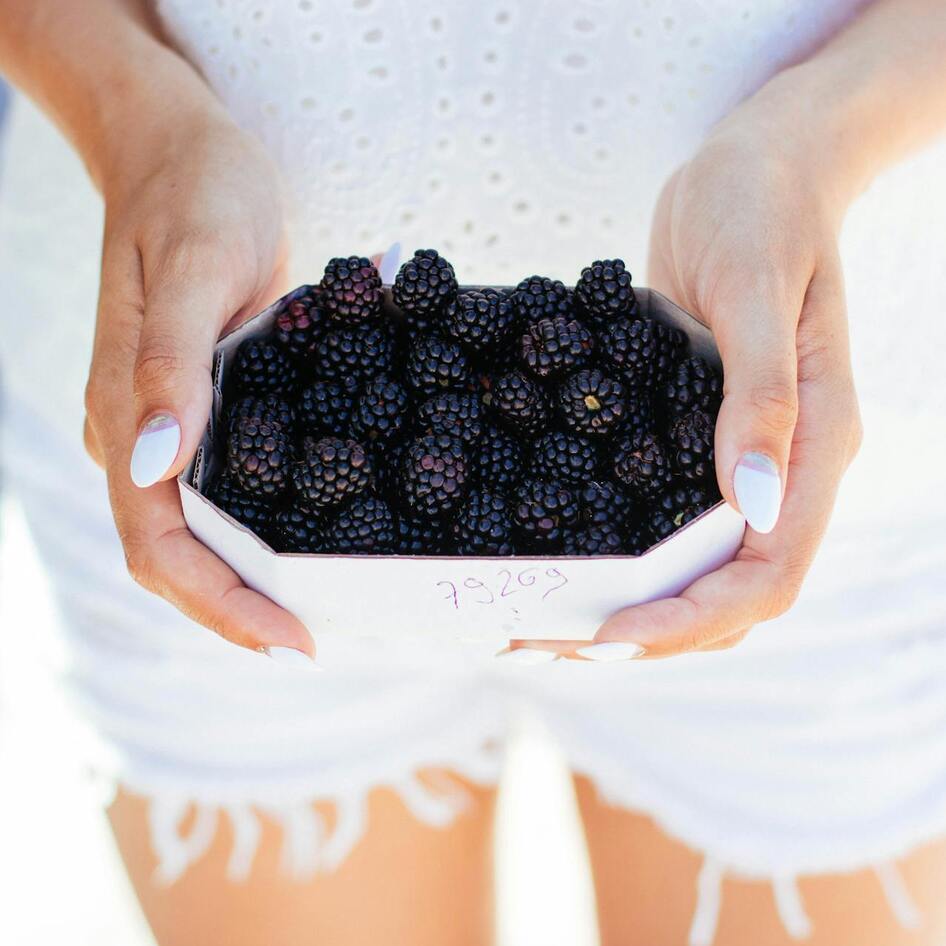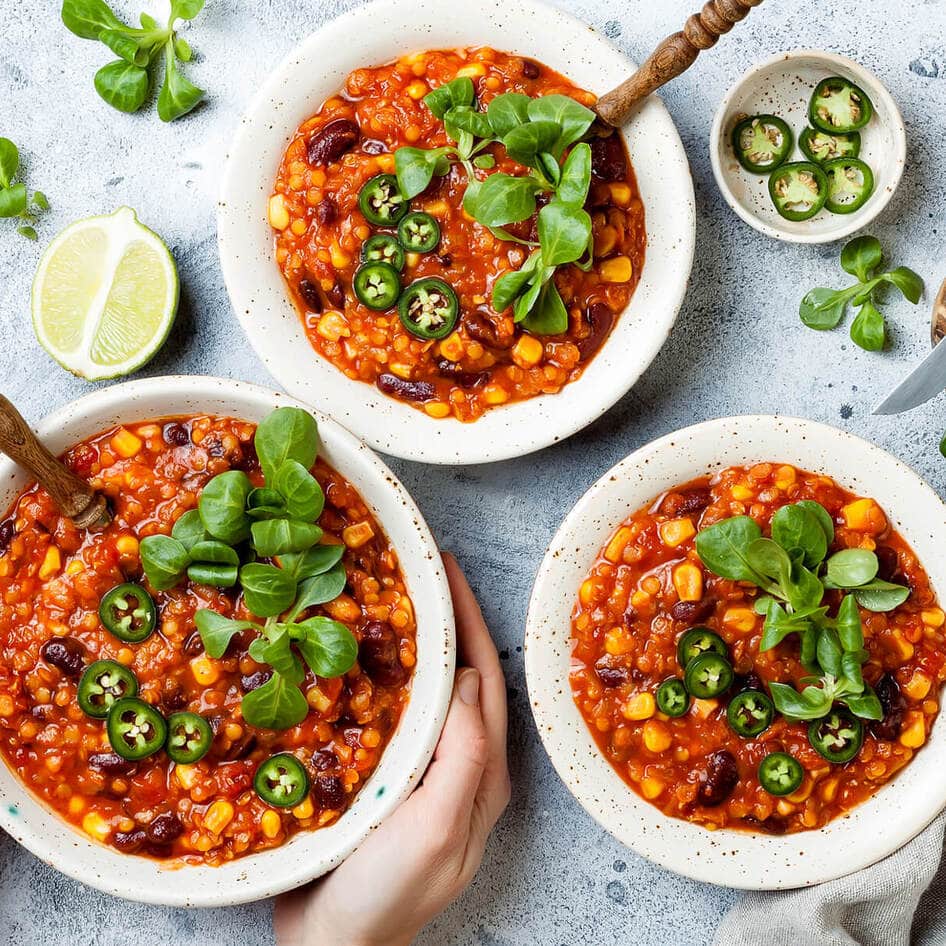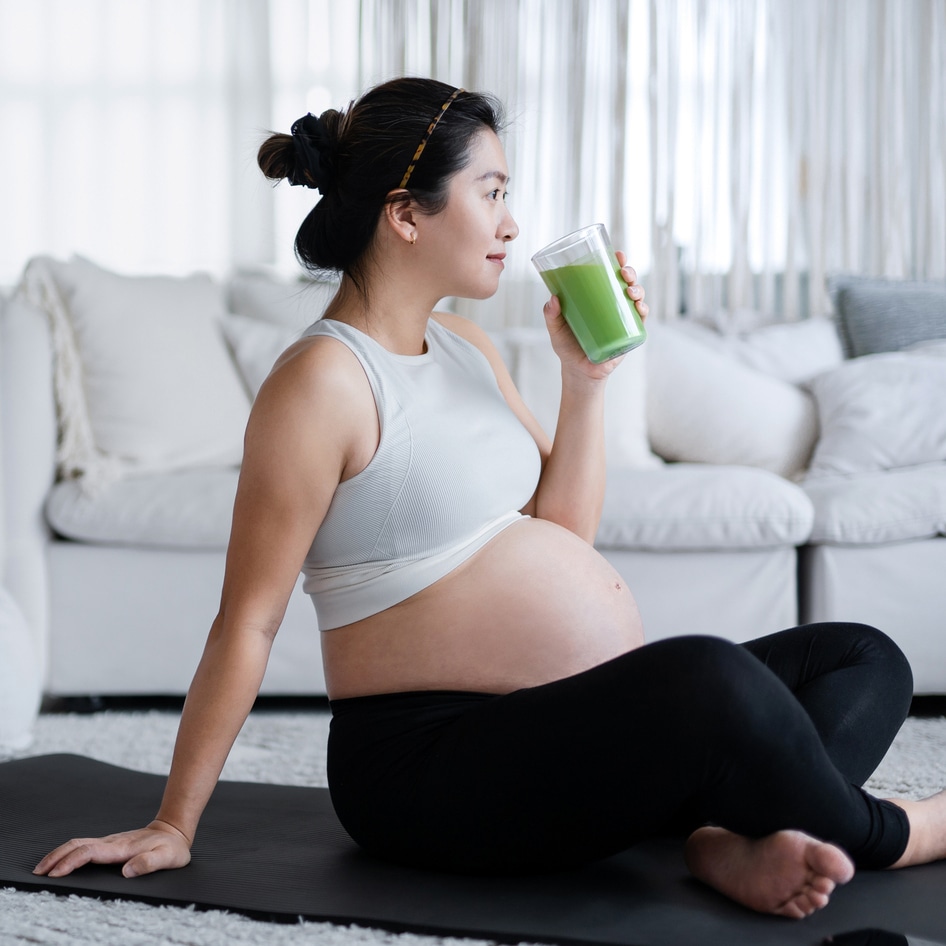According to prehistoric cave paintings, humans have been eating meat from cattle for quite some time. Back then, it wasn’t cows, but aurochs—a now-extinct ox species commonly regarded as the wild ancestor of modern cattle. Today, the appetite for cattle meat is still strong. In fact, research suggests that the average American eats around 60 beef burgers per year.
Excessive meat consumption, however, has been linked to cancer, type 2 diabetes, cardiovascular disease, and more. Plus, meat production is resource intensive and negatively impacts planetary health. Despite this reality, you don’t have to give up the flavors and textures of beef. Enter: plant-based innovators.
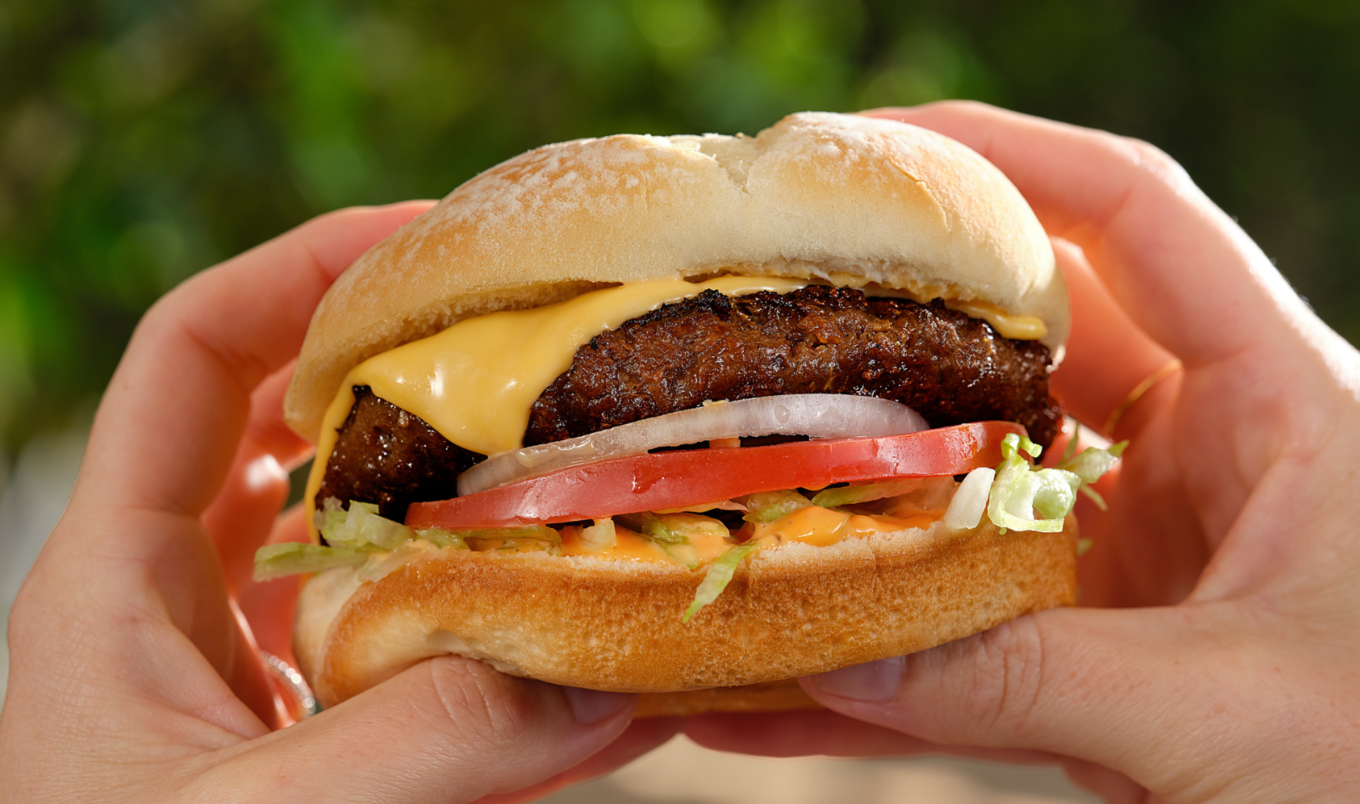 Beyond Meat
Beyond Meat
For years, soy protein was the dominant ingredient for producing products that look and taste similar to meat. But now, many brands, including plant-based giant Beyond Meat, are looking to the humble pea. Here’s why: when compared to meat, pea protein is the more climate-friendly ingredient choice. Plus, we’ve got all the information on its nutritional value, too, as well as all of its different uses (it’s not just good for vegan meat, it’s also being used in vegan dairy products).
What is pea protein?
When most of us think of peas, we imagine green peas often found in cans in the grocery store. Or if you’re lucky enough to have a garden, growing in lush green pods in the vegetable patch. But most pea protein isn’t derived from these types of peas. Instead, it comes from yellow split peas (also called field peas). They’re part of the same family as garden peas, but, as the name suggests, they’re more yellow and they’re more starchy.
There are a few different types of pea protein. The type found in a vegan meat product, for example, is usually called textured pea protein. Similar to meat, this type has a more fibrous structure and appearance. But there’s also pea protein isolate and pea protein concentrate, both of which you’re more likely to find in protein powders.
Pea protein nutrition
Pea protein is a good source of protein. “One cup of yellow peas on their own contains about 8 grams of protein. But one scoop of pea protein isolate—the protein powder you’d buy at a store—contains between 15 and 20 grams of protein for every 100 calories,” Anthony DiMarino, RD, told Cleveland Health. Plus, it contains fiber, carbohydrates, and iron.
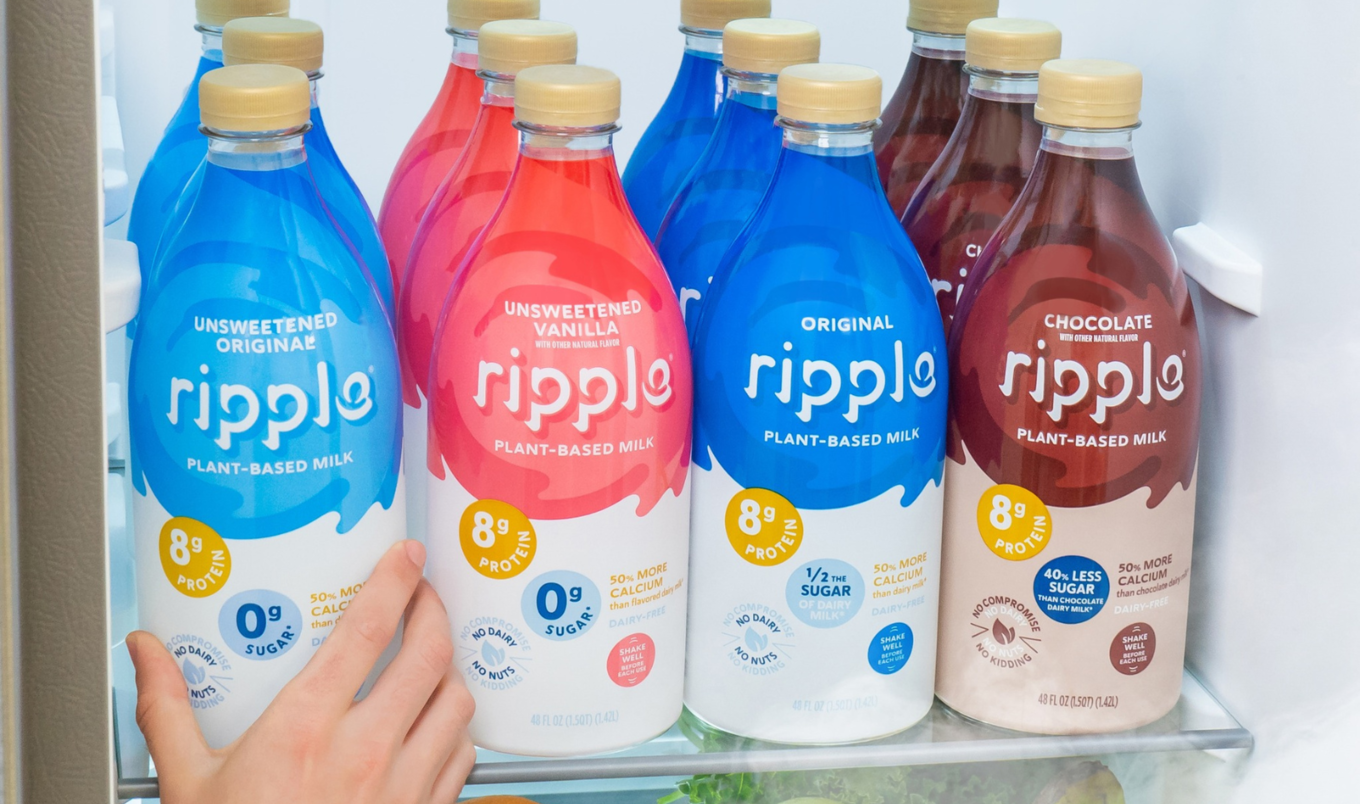 Ripple
Ripple
Research suggests pea protein also contains antioxidants, and, unlike soy, it’s considered hypoallergenic. This means that it’s unlikely to cause an allergic reaction—although some studies have suggested that it may cause a reaction in some with peanut allergies, as the legumes are closely related.
Pea protein versus meat
Pea protein is not only a good source of nutrition (and rivals meat in protein content), but it’s also a climate-friendly crop. In fact, according to plant-based ingredient specialist Roquette, bovine meat requires four times the amount of water as peas and has five times the impact on land use. “Peas simply yield more protein per acre,” Roquette notes.
BECOME A VEGNEWS VIP: Get exclusive product deals, freebies, and perks galore!
Plus, unlike animal agriculture, which is associated with soil erosion, peas actually help to regenerate the soil. That’s because they’re a nitrogen-fixing crop, which essentially means they add nitrogen to the soil as they grow. This helps improve the health of the soil, as well as the health of any crops grown after it on the same land.
What does pea protein taste like?
By itself, pea protein’s taste has been described as “grassy” or “chalky,” but, when you’re consuming pea protein, it’s unlikely you’re consuming it dry. When added to a shake, pea protein makes for a smoother, thicker texture. And, as described earlier, when used in vegan meat products, it offers a fibrous texture, which is similar to meat. When seasoned, as it is when used in meat analogues, pea protein takes on a savory, meaty flavor.
Pea protein uses
Pea protein can be used in many different ways. You can find it in powder form, which is usually added to protein shakes, or in vegan meat. Plus, it’s also been used in plant-based milk, cheese, and ice cream products.
Pea protein brands
Here are 10 brands that showcase just how versatile this simple legume can be.
1 Beyond Meat
When Beyond Meat was first emerging on the market, it knew that its customer base wanted to avoid more soy products. “The thing that recommends peas most strongly is what it’s not—and it’s not soy,” CEO Ethan Brown told The Verge. “The consumer told us very early that they wanted to avoid having additional soy in their diet.” While Beyond Meat is currently diversifying its protein portfolio and incorporating other legumes like lentils and faba beans, peas are still a key ingredient in its products, including its signature Beyond Burger.
find it here
2 This
UK brand This focuses on creating plant-based meat products that would make consumers question whether they were eating real meat, and it’s succeeded. Its product portfolio includes everything from its ultra-convincing Isn’t Bacon Rashers to its Isn’t Chicken Pieces. One of its key ingredients? Pea protein isolate.
find it here
3 OmniFoods
Since its US debut, OmniFoods has been the go-to for meaty, plant-based pork products and frozen meals. Its proprietary protein blend features soy alongside pea protein, shiitake mushrooms, and rice protein. Choose between dumplings, bao buns, and more.
find it here
4 Fry’s
Fry’s is South Africa’s leading plant-based meat brand for a reason. Craving chicken? It’s got strips, fillets, nuggets, and popcorn-style bites. If you want sausage rolls, it has three different vegan varieties. And if you want soy-free, pea protein-packed mince, it’s got you covered there, too.
find it here
5 Sproud
This Swedish brand was founded in 2018 and specializes in creamy, versatile, pea milk, including barista, unsweetened, and chocolate varieities.
find it here
6 Naked Nutrition
If you’re on the hunt for pea protein powder, Naked Nutrition has got you. Called Naked Pea, its powder is made with just one ingredient: peas. Yep, there’s nothing else in there. No additives or sweeteners, just peas. And they’ve all been sourced sustainably from farms in the US and Canada.
find it here
7 Ripple
Ripple boasts a dairy-free product line that’s rich in protein and contains up to 50 percent more calcium than cow’s milk. Offerings include non-dairy milk, protein shakes, and creamers.
find it here
8 Annie’s
If you thought you’d miss out on comforting mac and cheese when you went vegan, think again. Iconic organic mac and cheese brand Annie’s has several plant-based options, including its Vegan Cheddar Flavor Mac, which features organic pea protein.
find it here
For more on vegan ingredients, read:
JUMP TO ... Latest News | Recipes | Guides | Health | Subscribe
Here at VegNews, we live and breathe the plant-based lifestyle, and only recommend products we feel make our lives amazing. Occasionally, articles may include shopping links where we might earn a small commission, but in no way does this effect the editorial integrity of VegNews.

